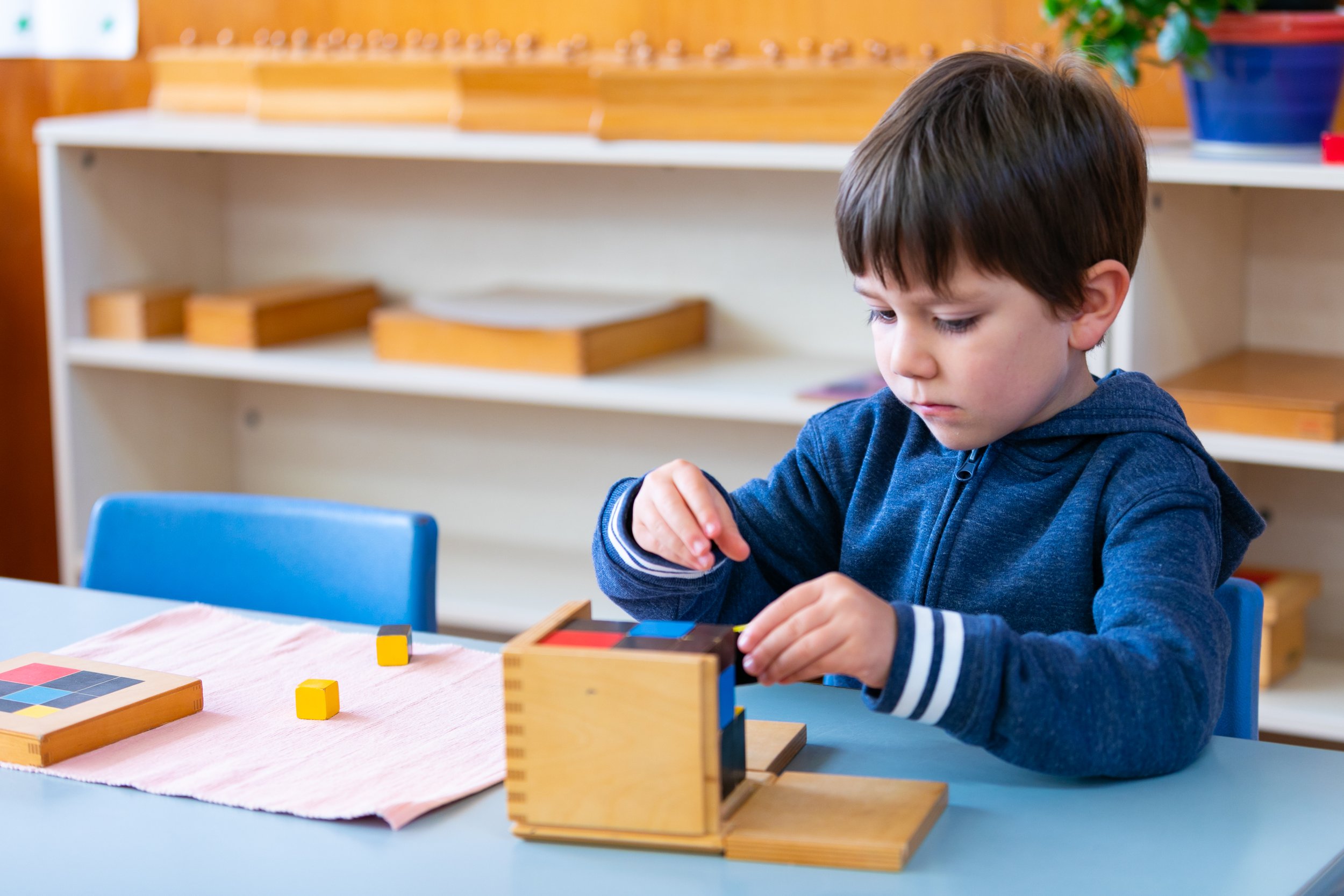
Our Philosophy
Montessori at Otari Preschool bases its philosophy on the Montessori Method of education that was developed by Dr. Maria Montessori. She founded the first Montessori community in 1907 in the slums of Rome, Italy, and called it “the Children’s House”. Today, the Montessori pedagogy is the single largest method in the world with over 22,000 schools in more than 100 countries on 6 continents.
The aim of Montessori education is to place all the children in the world at the center of society and to assist them in becoming caring, self-motivated, resilient and fulfilled individuals, able to create a sustainable and peaceful future for humanity. The Montessori philosophy advocates the holistic development of the child (physical, emotional, intellectual, social and spiritual) so that s/he can reach their own potential. Each child is considered a unique individual learner.
We aim to provide a high quality early childhood education that upholds the principles and practices of the Montessori philosophy as well as those that are outlined in Te Whāriki, the New Zealand Early Childhood Curriculum. The goals of Te Whāriki are met through the Montessori approach. Montessori advocated that the role of Early Childhood education was not to prepare children for school but for life. Based on this principle, children are provided opportunities to explore a wide range of activities that foster their independence, concentration, coordination and self-esteem, as well as a love for learning.
The way we operate on a daily basis very much reflects the Montessori philosophy. The choices that a child makes through the day are respected. Children are able to choose from a wide range of Montessori didactic materials as well as more general early childhood activities. The children are able to choose if and when they would like to go out in the garden, or when or whether they would like to have morning tea. Although children are encouraged to choose their own individual activity, there are many opportunities throughout the session for them to work and play with or alongside their peers. This enables them to develop their social skills, as they learn to cooperate, negotiate and turn-take.
Based on the observations of the teachers, children are guided towards constructive activities that they may never have experienced before. The teachers function as caretakers of the environment, providing a link between the child and the activities available to them.
There is great emphasis on taking care of the environment, which the children contribute to on a daily basis. Through these activities a community of children is fostered. They have daily opportunities to learn and use practical life skills that enable the young child to develop concentration and prepare them for more focused work. The young child is provided with real activities and given responsibilities in the care of the environment, themselves and others. Flowers are arranged by the children to beautify the room, windows are cleaned, tables scrubbed, decks swept…Becoming competent and skillful develops a strong sense of self-esteem. The Montessori philosophy is a way of being – it happens all the time! Our prepared environment (indoor and outdoor) provides rich learning experiences for the child. Activities are purposeful, real, and explorative and have a cycle of activity. The Montessori environment is orderly and structured simply to enable the child to make independent choices for their own learning and construction of self.

